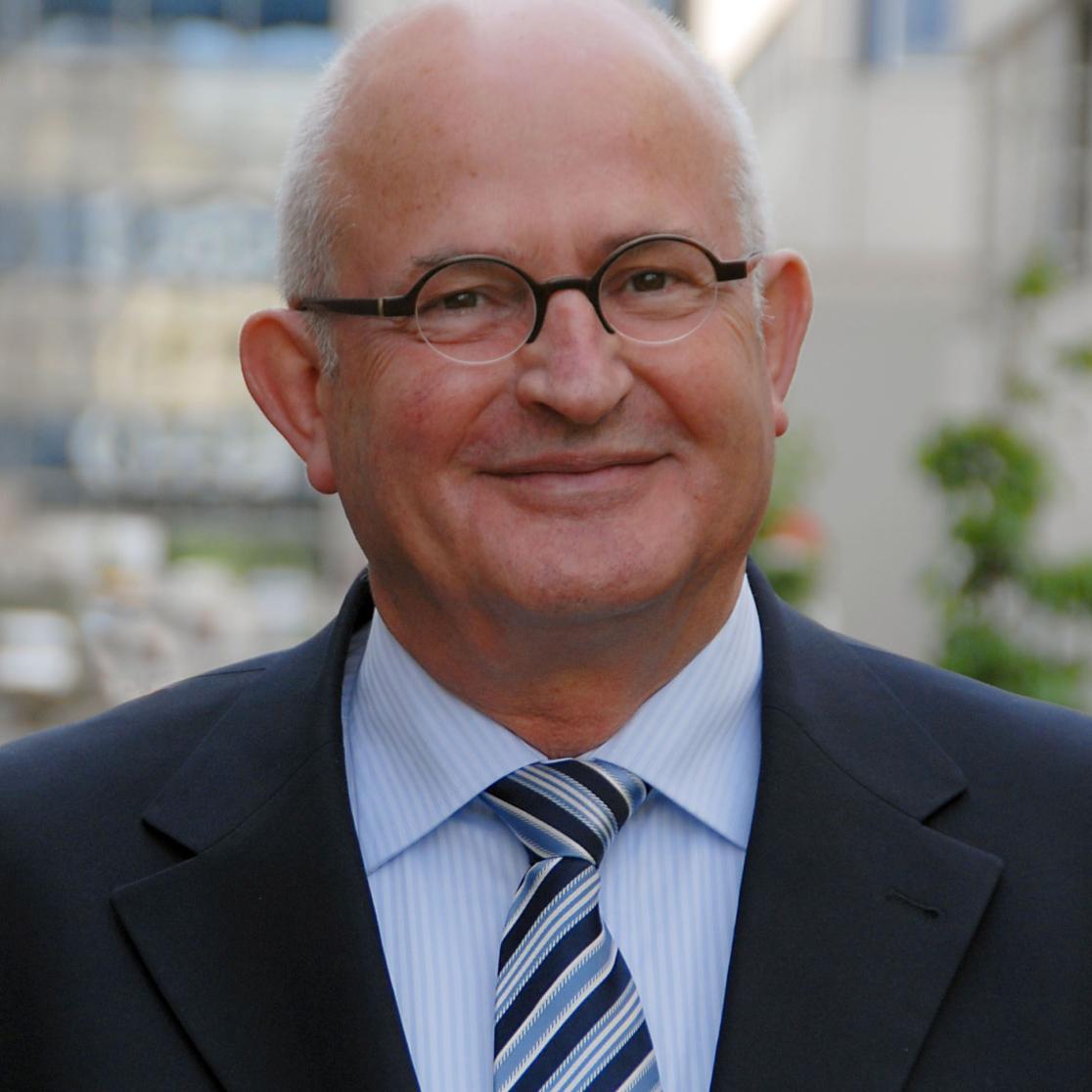In memoriam Joep Geraedts
We recently received the sad news that Prof Joep Geraedts passed away on 25 December. He was the founding father of the Department of Clinical Genetics at Maastricht UMC+.
Joep Geraedts was born in Swalmen (near the Dutch town of Roermond) in 1948. His parents had only gone to elementary school, but they encouraged him to pursue his education and so Joep went on to study biology at Nijmegen University. During his studies, he was already fascinated by genetics, and for his PhD research he went to Leiden, where he studied the cytogenetic aspects of leukaemia with Peter Pearson. A few years later, when Maastricht’s new medical faculty was looking for someone to set up a department of (Clinical) Genetics, it was partly on the advice of Hans Galjaard that Joep was invited to do so.
That’s how he came to Maastricht in 1982, where he was appointed professor of Genetics and Cell Biology at the age of only 34. He also became director of the newly established Limburg Clinical Genetics Foundation (SKGL), which began work early in 1983. Those were pioneering years, because nothing had yet been arranged – no labs, no equipment... nothing at all. But Joep managed to arrange it all. He was able to attract the right people, and with the help of colleagues and advisers the new specialisation took shape.
Joep guided the department through a merger and integration into the university hospital. From just a handful of physicians and laboratory technicians, the department grew to its current staff of 190. Besides diagnostics and patient care, there was also a strong focus on education, with Joep becoming chair of the Medical Faculty’s examination committee.
He was very approachable – no “ivory tower” – and his door was always open to all. For everyone, Joep Geraedts was Joep Geraedts, or just Joep. And although not every staffer realised it, he knew them all by name. They respected him because they could go to him not only with work-related problems but also with their personal concerns.
That was certainly true of the many PhD candidates he supervised during his career. Every one of them could imagine him in that characteristic pose he had: pondering, with his eyes half-closed. And just when you wondered if he’d fallen asleep, he would come up with a pertinent question or a relevant comment that proved otherwise. Many PhD students gained experience presenting their research at the Genetics Retreat initiated by Joep and others, an annual conference for and by young researchers. He recognised the importance of getting young people excited about the profession too, and he readily made time in his packed schedule to give schoolchildren a glimpse of what it involved.
He launched Dezen en Genen, a magazine for first- and second-line healthcare professionals. Joep was keenly aware of the role genetics can play in society, as well as the ethical and social aspects of heredity research. In 1985, when both IVF and prenatal diagnostics were performed in two adjoining areas at the Biomedical Centre, Joep Geraedts, Hans Evers, and Guido de Wert came up with the idea of developing preimplantation genetic diagnostics (PGD). Thanks to their unwavering conviction and perseverance, Maastricht UMC+ became the first – and so far the only – centre in the Netherlands licensed for PGT, as we currently term it.
Joep was tactful and knew how to access the right channels, and he could negotiate and overcome obstacles – all in the interests of the department and of genetics. He didn’t shy away from anything, even when there was a Cabinet crisis about PGD, and especially its application in cases of hereditary breast cancer. Wasn't this technology dangerous or even unethical? We then saw Joep on TV and in the newspapers, radiating calm and confidence. He made it clear that this new means of ensuring that a woman could have a baby without the risk of serious hereditary disease had been thought through and implemented with the greatest caution and care. His comments certainly played a role in the government's ultimate agreement to expand PGD in cases of hereditary breast cancer. Hereditary breast and ovarian cancer is now the most frequent reason for couples to undergo PGD. In 2008, Joep Geraedts was appointed Officer in the Order of Orange-Nassau, among other things for his pioneering work on PGD.
Joep chaired a number of organisations, including the Netherlands Association for Human Genetics (NVHG) and the Clinical Genetics Laboratory Diagnostics Association (VKGL). He was also an internationally recognised expert in the field of PGD. He enthusiastically chaired the European Society of Human Reproduction and Embryology (ESHRE) and in that role too, this amiable communicator was able to establish the right partnerships.
In 2013, Joep bade farewell to his Department of Clinical Genetics and to work at MUMC+. His departure was marked by a large-scale symposium at Maastricht’s central theatre, held with the sole purpose of putting the Clinical Genetics Department in the limelight one more time by way of legacy.
After leaving, he remained very active. He was a valued member of the Tripod committee that investigates emergency incidents at the hospital with the aim of improving processes and enhancing patient safety. Joep was rooted in South Limburg, where he enjoyed cycling with his club. He was in constant touch with the social and cultural life of Limburg. He was a loyal supporter at MVV Maastricht’s home football games. He organised concerts in Eijsden, where he lived, and was one of the driving forces behind the family museum there. Joep was witty, a real wizard with words, a talent that served him well as magnificent rector of the humorous Fools’ University of Limburg (NUL).
We will remember Joep as an inspired researcher, an excellent teacher, and a head of department who cared about his staff, but above all as a many-sided and broadly interested human being. MUMC+ and the Department of Clinical Genetics owe a great deal to him. We'll miss him.
